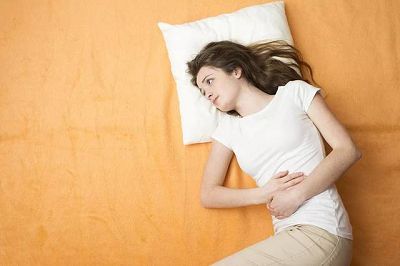Pelvic Inflammatory Disease: When Dysmenorrhea Signals a Bigger Problem
There is a certain correlation between dysmenorrhea and pelvic inflammatory disease. Pelvic inflammatory disease can lead to dysmenorrhea, or the menstrual abdominal pain can be further aggravated based on the original abdominal pain. Chronic pelvic inflammatory disease is a common disease in gynecology.

Due to the presence of inflammation and pelvic congestion, it may lead to excessive or frequent menstruation during menstruation. The clinical manifestations of the disease vary in severity. In mild cases, there are generally no symptoms. In severe cases, there is increased leucorrhea, mild dysmenorrhea, dripping menstruation, hidden pain in the lower abdomen, abdominal distension and diarrhea, frequent urination, lumbar-sacral pain, sexual intercourse pain, etc. Because pelvic blood stasis can lead to tubal adhesion obstruction and infertility, it needs to attract the attention of female friends.
Many gynecologists say that pelvic inflammatory disease will not only greatly impact patients' health but also aggravate dysmenorrhea symptoms in women. Pelvic inflammatory disease can also lead to female loss of appetite and abnormal leucorrhea. Back pain symptoms will also accompany many patients with pelvic inflammatory disease. This symptom lasts for a long time, affecting the health of patients and bearing a heavy psychological burden on women.
However, sometimes dysmenorrhea is not necessarily caused by pelvic inflammatory disease. Dysmenorrhea can be caused by endometriosis, adenomyosis, or uterine fibroids. In addition, primary dysmenorrhea is menstrual abdominal pain caused by increased prostaglandins in the uterus based on no lesions.
There are many specific reasons for dysmenorrhea in real life. Frequent constipation or hormone secretion disorders may cause dysmenorrhea in women. Women who eat too cold food during menstruation will also aggravate dysmenorrhea. Therefore, dysmenorrhea occurs. If the cause cannot be determined, it is recommended to go to a regular hospital's obstetrics and gynecology department, and the doctor will make a basic diagnosis according to the condition. And do a gynecological examination and ultrasound examination to clarify the diagnosis further and give reasonable and targeted treatment.
How to treat dysmenorrhea caused by pelvic inflammatory disease?
If there is pelvic inflammation and severe lower abdominal pain during menstruation, it is recommended to treat it with the following methods:
1. Be sure to treat pelvic inflammation actively. For example, you can use broad-spectrum antibiotics to treat metronidazole or tinidazole of anaerobic bacteria. The clinical symptoms will be significantly relieved after continuous medication for a week.
2. When pelvic inflammation is already chronic, you can take oral Chinese patent medicine for complementary treatment, such as Fuyan Pill, to achieve a better treatment effect. In daily life, you must pay attention to strengthening nutrition because patients with pelvic inflammation often have a long history of the disease, which is easy to cause fatigue. Only by strengthening nutrition can you improve resistance and promote inflammation absorption.
Females must pay attention to hygiene in their daily sex life and pay more attention to the hygiene of their living environment. You must eat more nutritious food in your daily diet, and you must eat less or not eat food that is too raw and cold. Daily, you should drink more water, keep enough rest, ensure sleep, adhere to regular life, do appropriate physical exercise, and improve the body's resistance.
Women must pay attention to keeping warm before and during menstruation and not take drugs indiscriminately. And you must regularly review to let the doctor know the treatment effect to adjust the treatment plan under the doctor's guidance.
Recommended Readings:
Does Pelvic Inflammatory Disease Attack People Without Sexual Life?
previous pagePelvic Inflammatory Disease Prevention: Your Living Habits Matter
next page
You may also be interested in
- Daily Care Tips for Pelvic Inflammatory Disease Caused by Ureaplasma Urealyticum
- Treatment of PID
- Why Does Pelvic Inflammatory Disease Cause Fatigue? Don't Ignore These 5 Symptoms!
- Can Abnormal Vaginal Discharge Cause Pelvic Inflammatory Disease?
- Can Pelvic Inflammatory Disease Cause Intestinal Symptoms?
Testimonials
- Adenomyosis with Ureaplasma Urealyticum Cured by Fuyan Pill
- Tubal blockage with hydrosalpinx can be cured by TCM shortly
- Fuyan Pill Helps A woman with Adenomyosis Get Pregnant
- A Woman with Hydrosalpinx Is Cured with Fuyan pill
- Pelvic Inflammatory Disease Testimonials
- Irregular Vaginal Bleeding and Endometrial Thickening Cured by Fuyan Pill
- Pruritus Vulvae and Frequent Urination: Mycoplasma Infection Cured after 2 Courses



